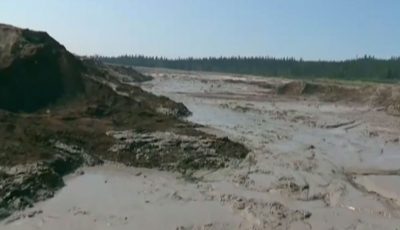National Energy Board not fulfilling its oversight role for pipeline safety
GLOBE-Net, January 26, 2016 – The National Energy Board is not living up to what Canadians should expect in its oversight of federally regulated pipelines according to the Commissioner of the Environment.
In an audit report tabled in the House of Commons today by environment commissioner, Julie Gelfand, key aspects of the National Energy Board oversight of federally regulated pipeline operations were found wanting.
Overall, there was progress in some areas, said the report, such as providing more access to information on incidents and compliance. However, the Board needs to do more to effectively adapt and evolve to keep pace with pipeline project proposals, the corresponding public interest and expectations, and recent regulatory changes.
Specifically, the audit concluded that the Board did not adequately track company implementation of pipeline approval conditions, or consistently follow up on deficiencies in company compliance with regulatory requirements.
“The National Energy Board did not always adequately track whether companies satisfy pipeline approval conditions.” environment commissioner, Julie Gelfand
Although the Board could demonstrate through a manual search of its records that companies had taken most of the required corrective actions, the information management systems used for this purpose were not integrated with each other, and were outdated and inefficient.
The audit focused on whether the Board was verifying that regulated companies were complying with pipeline project approval conditions and regulations, and whether they were prepared to fulfill their roles in cases of pipeline emergency response. It also examined whether the Board had taken action to verify that company emergency manuals were complete and up to date,
This audit is important, said commissioner Gelfand because Canadians rely on the Board to verify that companies are complying with all conditions of pipeline approval and with applicable regulations.
“The Board’s ability to fulfill its roles and responsibilities in emergency preparedness and response, supported by sufficient human resources, is critical to the safe and efficient transportation of oil and gas and to minimizing the risks of pipeline operations to the safety of Canadians and the environment,” she added.
Overall, the audit found that although the Board is currently fulfilling its role as lead federal agency in pipeline emergency response in the areas examined, there are important opportunities for improvement. It found that the Board should consolidate the results of risk assessments to improve its mandate-specific emergency management plan.
Also found wanting were the information management systems the Board used for this work. They were not integrated with each other, and were outdated and inefficient.
While the Board has improved its review process for companies’ emergency procedures manuals, a third of the reviews still lacked important information.
This finding is important, said the report, because incidents involving pipelines could lead to significant environmental damage and potential harm to humans.
The Federal Policy for Emergency Management requires government institutions to develop mandate-specific emergency management plans, based on an all-hazards risk assessment.
Consolidation of all risk assessment activities the Board conducts will be important as the Board prepares to assume new responsibilities, including powers to take over emergency response in certain circumstances, when the Pipeline Safety Act comes into force in June 2016.
Environment and Climate Change Minister Catherine McKenna welcomed the report and committed to ensure its recommendations are addressed.
The full report of the environment Commissioner can be found here.







